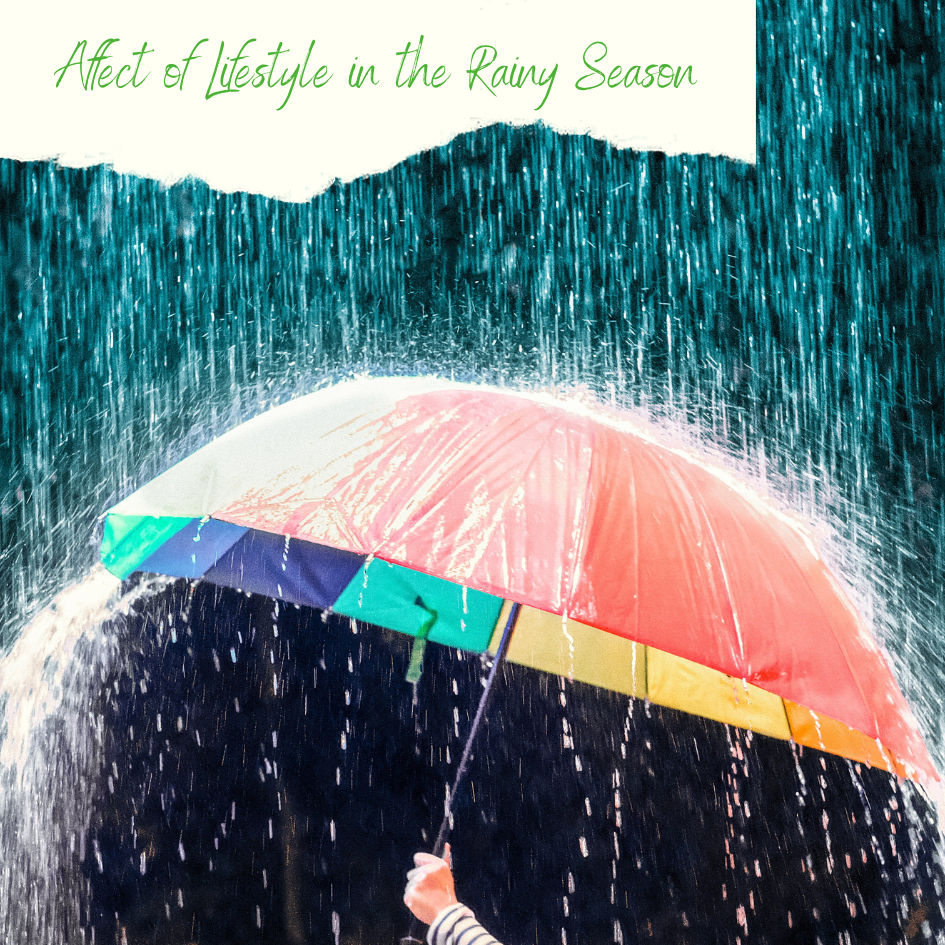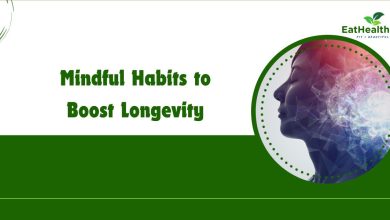Affect of Lifestyle in the Rainy Season
Lifestyle can have a Significant Impact during the rainy season
Lifestyle can have a significant impact during the rainy season. Here are some effects of lifestyle choices on health and well-being during this time:
1. Dietary Habits: During the rainy season, there might be a tendency to consume more fried and oily foods, as well as indulge in comfort foods. While occasional treats are fine, excessive consumption of unhealthy foods can lead to weight gain, digestive issues, and a weakened immune system. A balanced diet rich in fruits, vegetables, and whole grains will support your immune system and overall health.

2. Hydration: In the rainy season, people may not feel as thirsty as they do in hot weather, leading to inadequate hydration. However, rain doesn’t necessarily fulfill your body’s water needs. It’s essential to stay hydrated even during the rainy season to maintain bodily functions and prevent issues like urinary tract infections.
3. Exercise Routine: Frequent rainfall might discourage people from exercising outdoors, leading to a more sedentary lifestyle. However, it’s crucial to continue being physically active. Consider indoor workouts, such as yoga, home exercises, or joining a gym. Regular exercise boosts mood, supports immunity, and maintains a healthy weight.
4. Clothing Choices: In rainy and humid conditions, wearing damp or wet clothes for extended periods can lead to skin irritations and fungal infections. It’s essential to change into dry clothing and use proper rain gear when going outside to stay comfortable and healthy.
5. Mosquito Protection: Rainy seasons can bring an increase in mosquito populations, leading to a higher risk of mosquito-borne illnesses like dengue and malaria. Using mosquito repellents, wearing long-sleeved clothing, and keeping living spaces mosquito-free are essential practices to avoid such diseases.
6. Mental Health: Some people might experience mood changes or feelings of gloominess during the rainy season due to reduced sunlight exposure (seasonal affective disorder). Engaging in activities that boost mood, such as spending time with loved ones, pursuing hobbies, or practicing mindfulness, can help counteract these effects.
7. Sleep Patterns: Changes in weather and temperature can affect sleep quality. Creating a comfortable sleep environment and sticking to a regular sleep schedule will promote better sleep during the rainy season.
8. Sanitation and Hygiene: Rainy seasons can lead to waterlogging and increased risk of waterborne diseases. Maintaining proper sanitation and hygiene, especially handwashing, is crucial to prevent illnesses.
9. Air Circulation: During the rainy season, people tend to keep windows and doors closed to avoid rain entering their homes. However, this can lead to poor air circulation, which might aggravate respiratory conditions. Ensure that you ventilate your living spaces adequately.
10. Travel and Commuting: Rainy weather can disrupt travel plans and daily commuting. Being prepared for rain delays and ensuring safe transportation during heavy rains is essential for your safety.
Being mindful of your lifestyle choices and making necessary adjustments can help you stay healthy and enjoy the rainy season to the fullest. It’s about being prepared, staying active, eating well, and taking care of your overall well-being.




